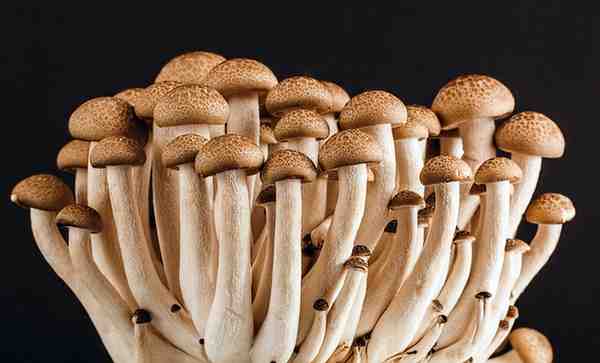
Fungi: A Promising Weapon in the Fight Against Plastic Waste
In the battle against plastic pollution, a surprising hero emerges from the vast and often overlooked kingdom of fungi. With millions of species estimated to exist worldwide, these resourceful organisms offer a unique set of possibilities, from alternative building materials to environmental detoxification. Now, scientists are harnessing the power of mushrooms and mycoremediation to tackle the ever-growing problem of plastic pollution.
Nature’s Cleanup Crew
Mycoremediation, a subset of bioremediation, utilizes fungi to break down environmental contaminants. Unlike bacteria-based methods, fungi employ their intricate network of thread-like filaments, called mycelia, to engulf and devour pollutants from the outside. Special enzymes secreted by the fungi then break down complex molecules in these contaminants, effectively transforming them into usable nutrients for the fungi themselves.
Unveiling Hidden Potential in Environmental Cleanup
Mushrooms have already proven their value in cleaning up various industrial and agricultural waste products. Oyster mushrooms, for instance, have been successfully deployed to eliminate E. coli from contaminated water and even break down toxic ash left behind by wildfires. Now, researchers are focusing on their potential to combat one of our most pressing environmental challenges – plastic pollution.
Breaking Down Plastic
Plastic, notorious for its resistance to degradation, presents a significant environmental hurdle. However, recent research has revealed the remarkable potential of a specific fungus called Pestalotiopsis microspora. Discovered by students in the Amazon rainforest, this unique mushroom has been shown to break down polyester polyurethane, a common plastic type, in just two weeks according to a 2011 Yale University study. Pestalotiopsis demonstrates the ability to consume plastic as its primary carbon source, transforming it into organic matter. This opens exciting possibilities for employing mycoremediation in landfills, waste treatment facilities, and even the vast plastic gyres accumulating in our oceans.
Addressing the Challenge of Non-Recyclable Plastics
Certain plastic types, like polypropylene, pose a particular challenge in recycling due to their complex structure. Research from the University of Sydney highlights the promise of fungi like Aspergillus terreus and Engyodontium album in breaking down polypropylene. After a 90-day incubation period, these fungi were able to achieve a 25-27% reduction in plastic volume. This intriguing finding paves the way for potentially large-scale solutions for handling non-recyclable plastics.
From Labs to Landfills
In 2017, Sehroon Khan of the Kunming Institute of Botany conducted a groundbreaking experiment in a Pakistani landfill. By introducing Aspergillus tubingensis, a fungus known to break down polyurethane, Khan observed significant plastic degradation within weeks. This experiment provided valuable real-world evidence for the potential of fungi in tackling plastic waste.
Fungi Take Center Stage in Innovation
Fungi are not merely confined to research labs. They are making significant strides in practical applications. Fungi Solutions, an Australian company, conducted a successful trial in Melbourne showcasing the remarkable capabilities of oyster mushrooms. Within a week, the mushrooms demonstrated a clear ability to break down toxins and microplastics present in discarded cigarette butts. The company estimates that this technology has the potential to remove a staggering 1.2 million cigarette butts from landfills annually, offering a tangible solution to a widespread plastic waste problem.
A Vision for the Future
The Fungi Mutarium, designed by Katharina Unger in collaboration with Utrecht University in the Netherlands, embodies a novel approach to plastic recycling. This innovative system utilizes oyster and split gill mushrooms to biodegrade agar pods containing UV-treated plastics. This project not only demonstrates the feasibility of smaller-scale, household solutions but also envisions the potential for larger-scale systems in community recycling centers. Interestingly, some mushrooms used in these settings, like those in the Fungi Mutarium, are capable of producing edible mycelia, adding another layer of potential benefit.
Global Crisis Solution
As plastic pollution continues to escalate, mycoremediation emerges as a promising and natural solution. With over 8.3 billion tons of plastic produced since the 1950s, the need for sustainable alternatives is becoming increasingly critical. The potential of mycoremediation offers a glimmer of hope for effective global plastic waste management.
Fungi are displaying a remarkable capacity to revolutionize our approach to plastic waste management. From large-scale operations in landfills to potential solutions for everyday plastic use, mushrooms offer a sustainable and environmentally friendly weapon in the fight against plastic pollution.


